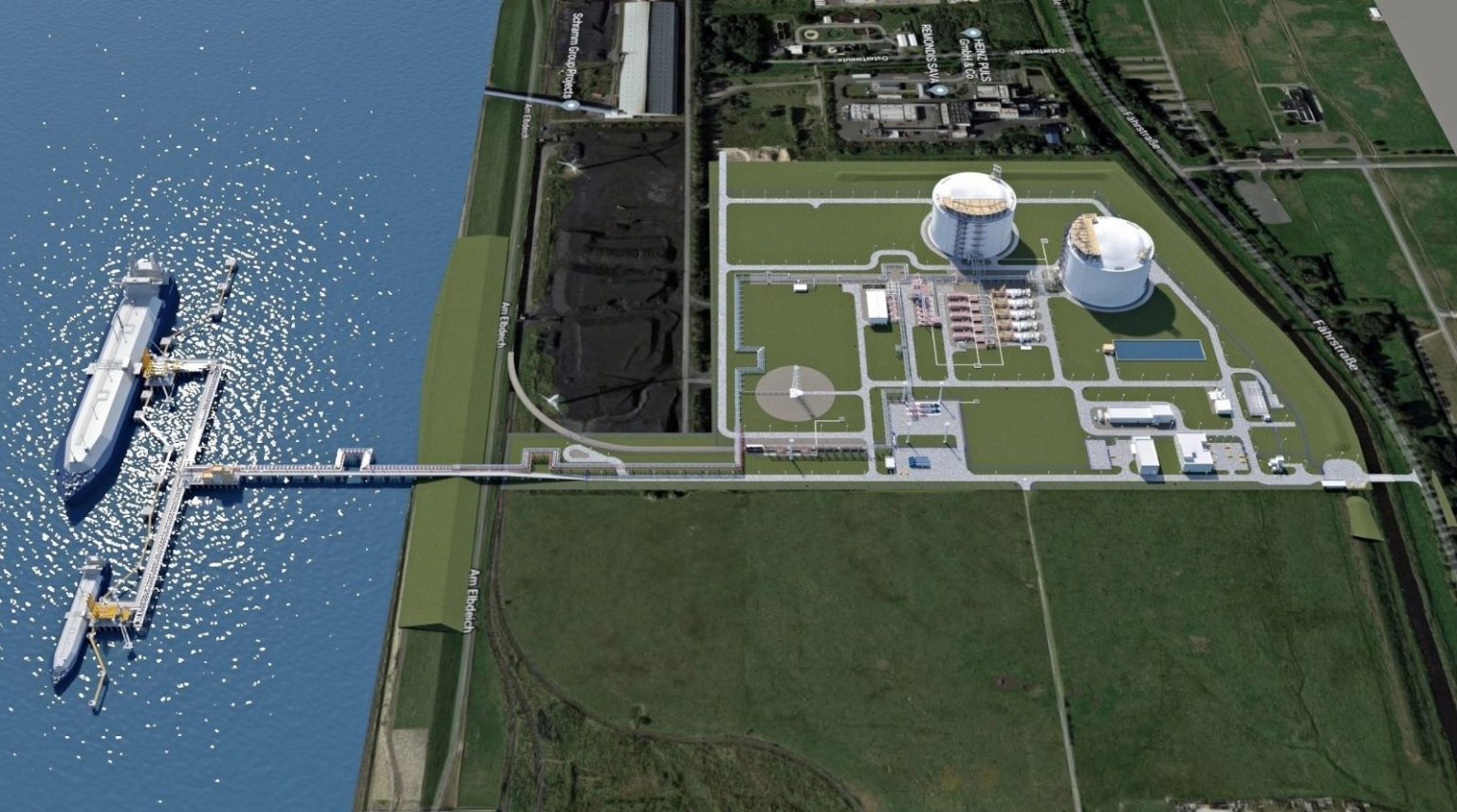A unit of French construction company Vinci and Spanish engineering firm Sener have won an engineering, procurement, and construction contract for the onshore LNG import terminal in Brunsbuettel, Germany.
Vinci said in a statement it had signed the contract via its subsidiary Cobra IS and in a consortium with Sener to build Germany’s “first regasification terminal”.
The customer is German LNG Terminal, the developer of the facility that will have a production capacity of 8 billion cbm of natural gas per year, two 165,000 cbm storage tanks, and two jetties.
Vinci said the terminal located at Brunsbuettel at the mouth of the Elbe on the North Sea would also be equipped with auxiliary operating systems, infrastructure, and buildings.
Also, the terminal would enable Germany to import LNG by sea, to be unloaded there for storage and regasification before being injected into the German grid or transported by trucks or by rail, it said.
The firm said the partners expect to complete the installation in 2026, with the works lasting 42 months.
Vinci did not provide the price tag of the deal.
Cobra and Sener have previously completed the LNG terminals at Sagunto and Bahia de Bizkaia in Spain, Gate in the Netherlands, Dunkirk in France, and Zeebrugge in Belgium.
Sener said in a separate statement that Cobra has a 62 percent share in the new consortium while the Spanish firm holds the rest.
“The collaboration is worth a substantial investment and comprises a first tranche of preliminary work lasting around 9 to 15 months, with some construction work already taking place in parallel over a period of around 42 months,” it said.
German LNG imports
Earlier this year, Dutch gas grid operator Gasunie joined forces with the German government and RWE to build the Brunsbuettel LNG import terminal as part of the country’s plans to reduce reliance on Russian pipeline gas and boost energy security.
Gasunie has a 40 percent operating stake in the facility. RWE, which plans an ammonia facility next to this terminal, has 10 percent in the facility and the government holds 50 percent.
LNG giant Shell also plans to book a “substantial part” of the Brunsbuettel terminal’s capacity.
Germany currently has no operational LNG import terminals but the country has chartered in total five FSRUs to fast-track LNG imports.
These vessels include the two units RWE chartered from Hoegh LNG, the Dynagas-owned 174,000-cbm Transgas Force and Transgas Power that will go on charter to Uniper, and Excelerate’s FSRU chartered by Engie, TES, and E.ON.
Besides the onshore LNG import plant, Brunsbuettel will also host one of the four FSRUs RWE and Uniper chartered.
RWE is developing the Elbhafen LNG terminal in Brunsbuettel and Uniper is working on the Wilhelmshaven LNG terminal.
These two facilities with a capacity of up to 12.5 bcm per year should go online by the end of this year while the other units should start operations next year.
On top of these five FSRUs, Deutsche ReGas is also working on the first private German FSRU-based facility in Lubmin.

